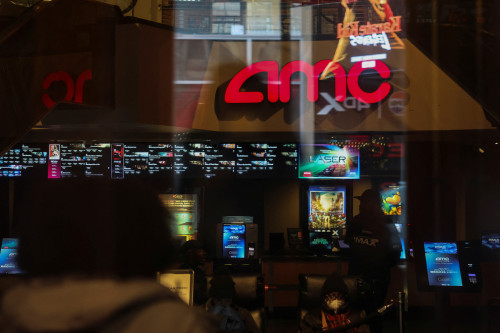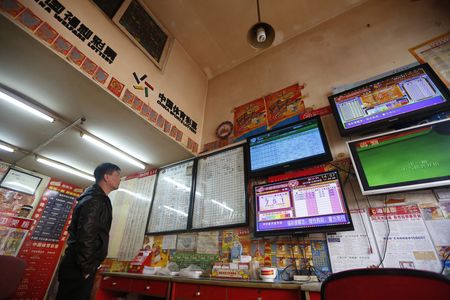 1
1 1
1
BEIJING (Reuters) – April sales of Chinese lottery tickets jumped to their highest in a decade, data showed on Wednesday, with economists saying young people in particular were keener to try their luck amid greater economic uncertainty in the wake of the pandemic.
The world’s second-largest economy is recovering from three years of stringent COVID-19 curbs, growing 4.5% in the first quarter, but April data suggested the momentum was weakening, and the youth jobless rate hit a record high of 20.4%.
Nationwide lottery sales jumped 62% on the year to 50.33 billion yuan ($7.28 billion), for the highest April figure in a decade, while the first four months brought in 175.15 billion yuan, up 49.3% on the year, finance ministry data showed.
“Earning one million is not as good as winning one million,” said Freddie Xiao, a 28-year-old woman working on content marketing for an internet company, as she bought some lottery tickets in a mall in Beijing, the capital.
Xiao was motivated by worries about losing her job, she said.
Economic uncertainties tend to correlate with lottery ticket sales, some economists say.
“People, especially young people, hope to strike it super rich overnight with a little money,” said Yi Xianrong, an economist at Qingdao University.
“This is related to the economy, as many young people don’t have anything to do and they go to lottery shops.”
China’s ruling Communist Party banned gambling after taking power in 1949, but state-run sports lotteries have become hugely popular since they started in the 1980s.
Lottery products are typically sold in the form of physical tickets through authorised stations. These range from dedicated lottery stores to counters in supermarkets, post offices and gas stations.
This week, a street vendor in Yiwu in the eastern province of Zhejiang celebrated his 26-million-yuan lottery jackpot by wrecking his food stall, an episode that went viral on Chinese social media.
In April, welfare lottery sales rose 30.3% from a year earlier, while sports lottery sales jumped 81.8%, the ministry said. It attributed to the rise a revival in sports events and the promotion of lottery games.
($1=6.9121 Chinese yuan renminbi)
(Reporting by Kevin Yao, Albee Zhang and Qiaoyi Li; Editing by Clarence Fernandez)